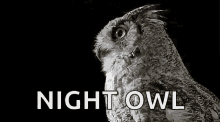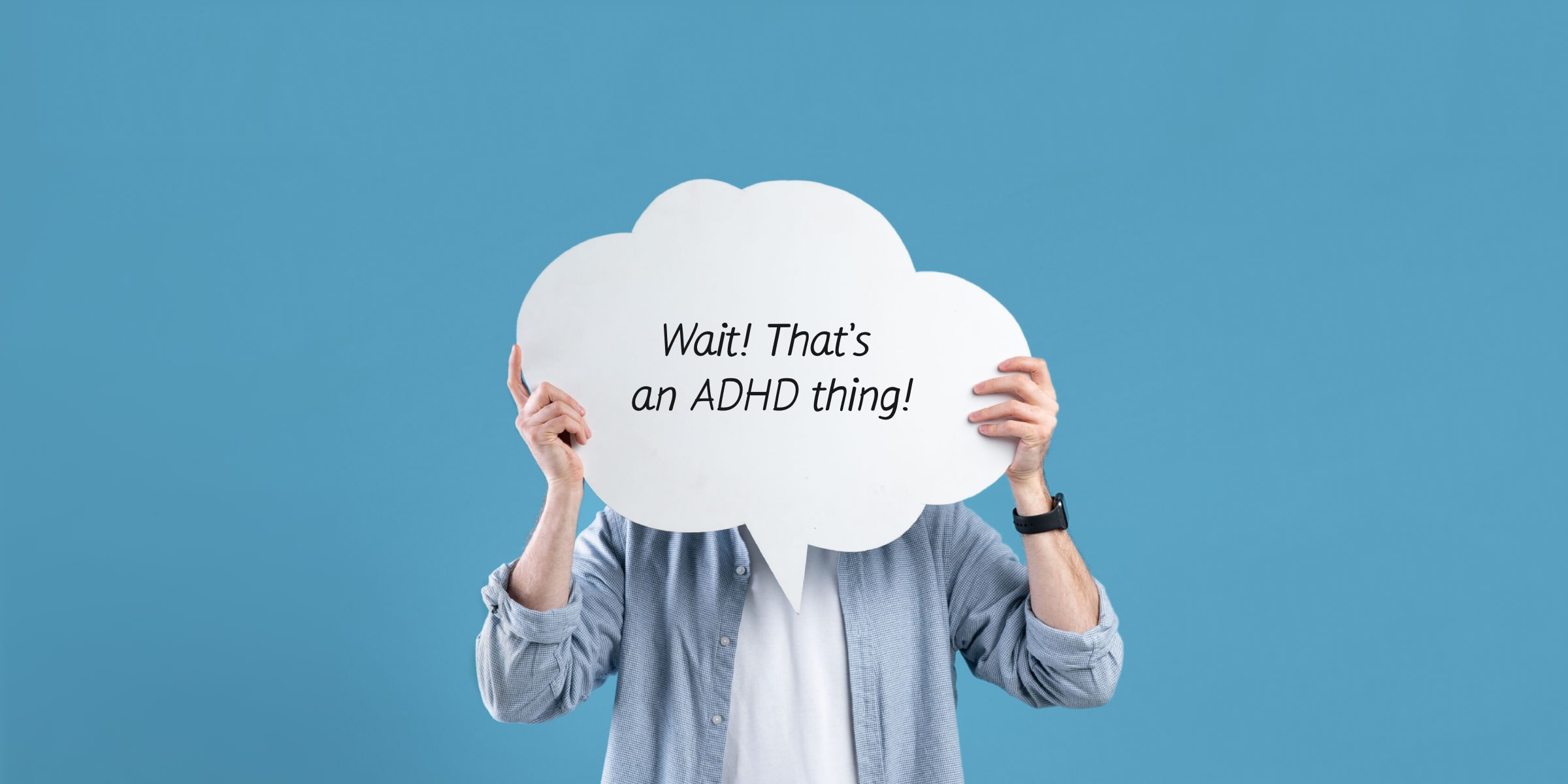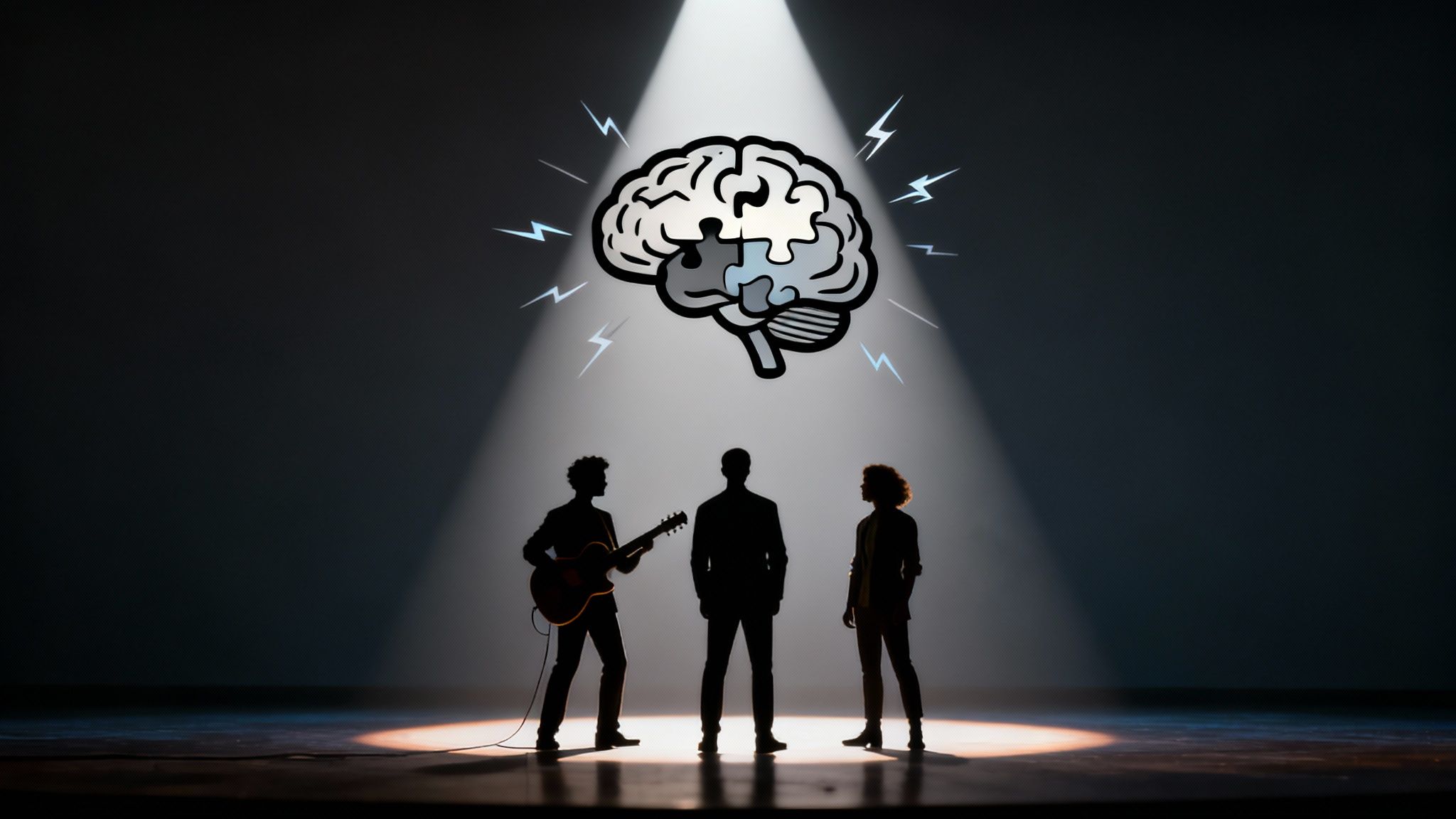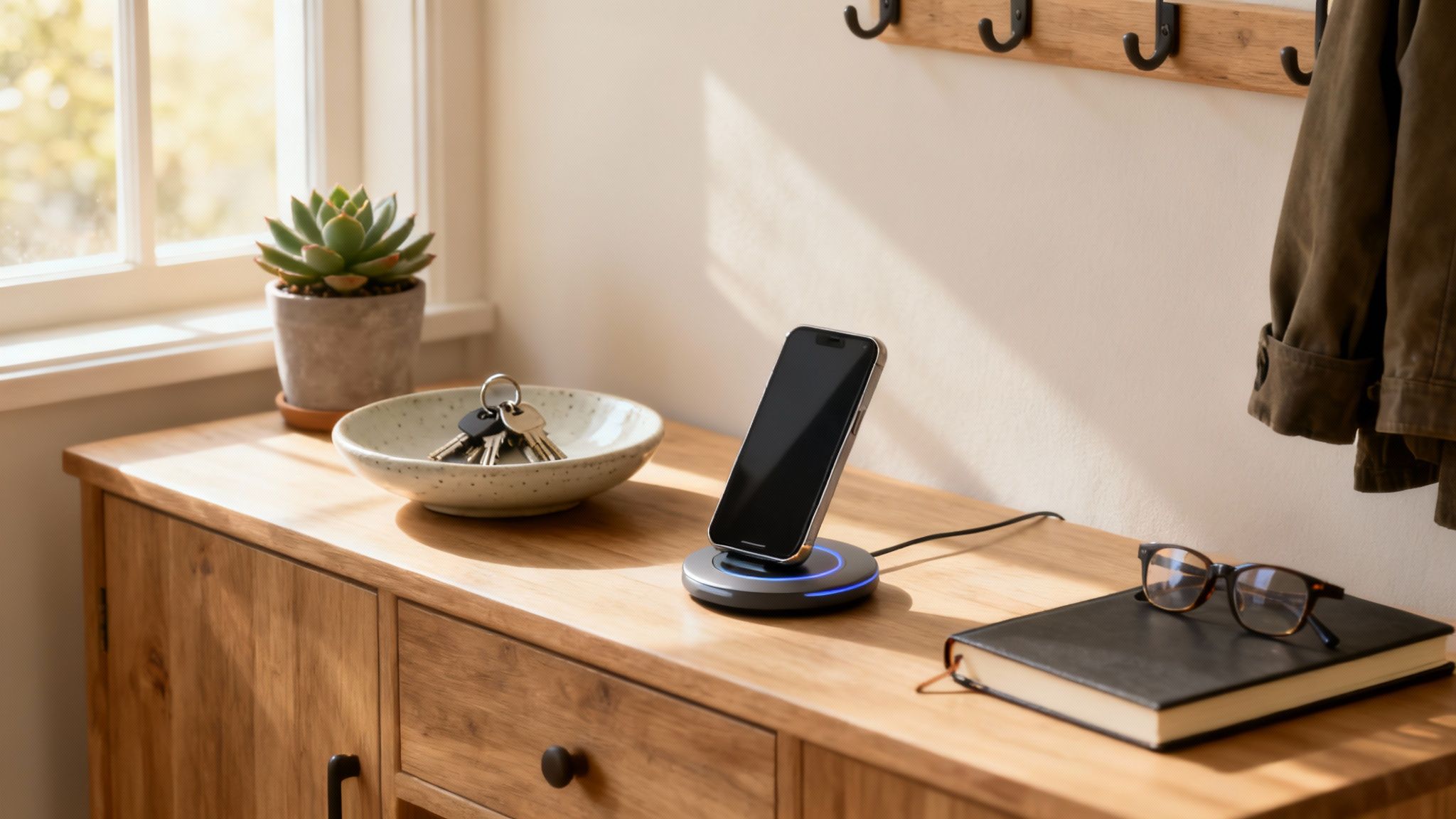If you've been diagnosed with ADHD as an adult, chances are you've experienced some good ol' imposter syndrome and self-doubt. It's not uncommon for ADHDers to question whether or not they actually have the condition.
I still question if I'm 'faking it', and I'm the most ADHD person I know!
As an ADHD advocate and content creator, I've noticed a trend through the years that certain behaviors are common among adults with ADHD. The best part? Most of these 'ADHD traits' are things you'd least expect are related to ADHD—things you've maybe always done.
However, it's important to remember that everyone is unique, and not everyone's symptoms manifest in the same way.
Without further ado, here are 22 unsuspecting characteristics that might be caused by your (potentially-) ADHD brain.
Too long; didn’t read
- Many ADHD adults may experience imposter syndrome and self-doubt regarding their condition.
- Common ADHD traits in adults include forgetfulness related to basic needs, compulsive behaviors, and difficulty estimating time.
- ADHDers often have a wide range of hobbies and frequently abandon them when they lose interest.
Embrace your ADHD! Join our community to share insights and learn ADHD coping strategies. Together, we can break down stereotypes, empower each other, and thrive with ADHD. Get started with Inflow today!
22 weird things you didn't know were related to ADHD
1. “Why did I walk into this room...?” is something you’ve asked yourself many times.
💡 Why this happens: ADHDers often have a less-than-desirable working memory.
Any minor distraction from what you're currently doing (for example, standing up and moving) can override your focus, leaving you blankly staring inside your fridge while you attempt to recall what brought you there.
2. You forget to do things related to your basic human needs.
Ever realized that it's 8 PM and you haven't eaten all day? What about sprinting to the bathroom because you held it for too long while playing Zelda or watching crime documentaries?
💡 Why this happens: When people with ADHD are incredibly focused on something ("hyperfocus"), it's hard for our brains to prioritize tasks... even if it's important for our survival, like drinking water or sleeping.
Other reasons can include time blindness and forgetfulness.
3. You spend an excessive amount of time picking at your blemishes.

This is big for me. I get so consumed by the satisfaction of squeezing a pimple or ingrown hair. I can spend up to an hour leaning over my bathroom sink. When I finally walk out, I'm left to explain to my concerned 6-year-old why I have red marks all over my face.
Other people may experience this compulsive hyperfixation with nail-biting, cuticle-picking, or hair-pulling.
💡 Why this happens: Body-focused repetitive behaviors (BFRBs) commonly co-occur with ADHD. These are typically adopted as self-soothing habits to quell anxiety or stress. Other causes for these behaviors are related to our dopamine deficiency — our brains may process these behaviors as rewarding, which keeps you coming back to that bathroom sink.
4. You severely over- or under- estimate how long something will take.
Do you ever sit down to work on a task that you claim will "only take, like… 5 minutes, tops," only to look up at the clock mid-task and realize you’ve been sitting there for 2 hours?
💡 Why this happens: Most ADHDers struggle with executive dysfunction, which includes a variety of challenging traits. Among those traits is 'time myopia' or 'time blindness'.
5. You’ve had a LOT of hobbies in your life.
And you probably spent a lot of money, time, and effort on them, swearing "this is going to be the hobby that finally makes you happy!"
💡 Why this happens: ADHD brains love dopamine, and nothing showers us with that delicious neurotransmitter more than novelty.
6. You’ve abandoned many hobbies (see #5) because you're bored with them after a week.
Shout-out to the box of unused expensive acrylic paints that have been in my garage for two years!
💡 Why this happens: Our brains love novelty. And when the excitement of that newness wears off, we're usually not interested in sticking around. Onto the next hobby! (This has a lot to do with dopamine-seeking behavior!)

7. You’re clumsy or accident-prone (or you used to be as a child).
Raise your hand if you've been to the ER more times than you can count!
🧠 How it's related to ADHD: Many ADHDers struggle with some sort of sensory processing, including challenges with the vestibular sense—which helps us to maintain our balance—and our proprioception, which aids in our awareness of our body's position in relation to itself and nearby objects. A deficit in these senses can lead to accidents.
And a lot of them.
Another reason this could happen: dyspraxia, a comorbid condition.
8. At any given time, you’re covered in a ton of bruises.
(I started counting mine as I typed this, but was bored by the time I reached 18.)
🧠 How it's related to ADHD: Like #7, this is mostly related to proprioception and vestibular processing issues. In addition, this can also be caused by a lack of paying attention to surroundings, or a common comorbid connective tissue disorder: Ehlers-Danlos Syndrome (EDS).
9. Traffic and long lines make you feel angry inside.
Anyone else yell at other cars even though they can't hear you? Just me..?
💡 Why this happens: People with ADHD — especially those with the hyperactive-impulsive subtype —can sometimes be impatient and impulsive... with a short fuse.
10. As a child, your report cards almost always had ‘but’ statements.
- "Ari is very bright, but they always daydream in class."
- "Bartholomew was a pleasure in class, but he was always losing his homework."
- "Sydni has a lot of potential, but she is overly talkative and constantly distracts other students."
(Fun fact: that last one's based on a true story.)
🧠 How it's related to ADHD: While society's perception of ADHD is improving, there's still a long way to go. Many adults still believe that girls can't have ADHD, or that it's just 'laziness' or a 'lack of effort'.
Because of these misconceptions about ADHD, many neurodiverse kids are scolded for their behaviors instead of receiving the support they need.
11. You’ve spent many nights lying awake, stressing over something embarrassing you did a long time ago.

I bet you still remember how no one laughed at that joke you made in 2009. And I bet you still cringe when you think about it, convinced they all remember, too.
(Spoiler alert: they don't. I promise.)
💡 Why this happens: Rejection sensitive dysphoria (RSD) is experienced by a lot of people with ADHD and autism. It's most likely caused by our experiences in childhood, specifically those involving peers and caregivers.
Regardless of its cause, RSD can lead to extreme rumination and social anxiety, hence the 2 AM panic about that bad joke in '09.
12. Your eyes randomly un-focus while you’re reading things — especially on computers.
Have you ever been working on the computer, intensely focusing on the text on the screen, only to suddenly have your eyes do the thing and make your vision go blurry for a moment?
🧠 How it's related to ADHD: This one isn't an actual ADHD symptom, but it is a sign of accommodative dysfunction (AD), which very commonly co-occurs with ADHD. Put simply, AD is a set of vision dysfunctions that can affect the eyes' ability to focus on things at certain depths.
13. You sit in your car for a long time before going into the store or your house.
Or you stand in the shower for a long time before getting out; or you feel like you're glued to your bed in the morning, even though you want to get up and start the day.
💡 Why this happens: One of the executive functioning skills we often struggle with is 'cognitive flexibility'. This skill category includes a bunch of separate skills, but one of the biggest ones I've seen ADHDers struggle with the most?
Task-switching. Switching tasks is almost impossible for some of us, because once we have momentum, it's hard to stop and switch to another task—even if that other task is more important than the one you're stuck in.
14. It’s difficult for you to maintain friendships and relationships.
🧠 How it's related to ADHD: On the same note as #10 and #11, rejection sensitivity and negative interactions with authority figures and peers can leave a long-lasting effect on how we manage our interpersonal relationships.
15. You feel more inspired and awake late at night, compared to during the day.

This is the worst, because I love sleep! I want to sleep, but I can't. So instead, I stay up until 1 AM, writing notes for my next blog idea.
🧠 How it's related to ADHD: Over half of ADHDers also experience sleep issues. The one that most commonly affects our circadian rhythm — the ability to fall asleep and wake up at a 'decent time' — is called delayed sleep phase syndrome, or DSPS.
This can also be related to hyperfocus and time blindness.
16. Google, YouTube, and social media are like black holes once you open them.
One Google search leads to another, leads to another, leads to...
💡 Why this happens: This is likely a byproduct of our hyperfocus and naturally-curious brains. Also, who doesn't like the little whooshy sound Twitter makes when you refresh your notifications?? (Hello, dopamine!)
17. The pile of mail and bills on your dining room table is collecting dust.
Or maybe it's in that 'junk drawer' in the kitchen. Or your desk. Regardless, it's dusty.
💡 Why this happens: ADHDers tend to avoid things that require mental effort... especially if it's time-sensitive or super important.
I know, it makes no sense, and I wish I had a better explanation. It's just one of those frustrating ADHD things that feeds into ADHD tax, past-due bills, and anxiety.
18. Your big goals and plans change faster than the speed of light.
How many majors did you have in college before you finally chose one? Or dropped out? (No judgement, because same.) What about jobs? 5-year plans?
💡 Why this happens: You're at #18 out of 22, so you may be able to guess these by now. If you said, "something about novelty and boredom and dopamine..?" then you are correct!
19. Canceled plans excite you.
I was probably dreading those plans anyway, because I'm not the same person I was when I made them.
🧠 How it's related to ADHD: A big component of RSD (#11, #14) is people-pleasing, so it's possible the plans were made or agreed to when you were in people-pleasing mode.
But when the date of said plans starts to creep up, you probably experience overwhelm and social anxiety—both of which are common ADHD experiences. So, when the plans are canceled by someone other than you? You're ecstatic!
20. When you tell a story, you always add side stories. And those side stories have side stories.

This also goes for writing. (You know how we sometimes like to throw in bonus content with parentheses -- or dashes -- kinda like I'm doing right now?)
🧠 How it's related to ADHD: This is most likely related to ADHDers' tendency to be talkative and excitable. The more we're invested in the story, the more side stories you get.
You're welcome.
21. You own lots of planners and notebooks that you barely used before completely neglecting them.
If you haven't felt called out yet while reading this, I'm hoping that this one finally does the trick. I don't know about you, but I have enough planners and journals to last a lifetime. But do they last a lifetime?
No. Never.
I fill in a new planner the very first day I have it (we're talkin' months in advance) and then never use it again. Don't even get me started on new notebooks.
🧠 How it's related to ADHD: Novelty! And shiny new objects! And our common obsession with wanting to get our lives together, but not actually getting our lives together! Russell Barkley calls this 'intention-deficit', and I relate to that term more than I'd like to admit.
22. You’ve always felt... ‘different’
💡 Why this happens: Because you are different! That's the very meaning of the word 'neurodivergent' -- our brains function differently, which inherently makes us different. But you know what?
Different is good, and you're alright in my book.
---
Please note that this blog was published for awareness and entertainment purposes only. It is not meant to serve as a diagnosis, nor should it replace professional advice or treatment.






